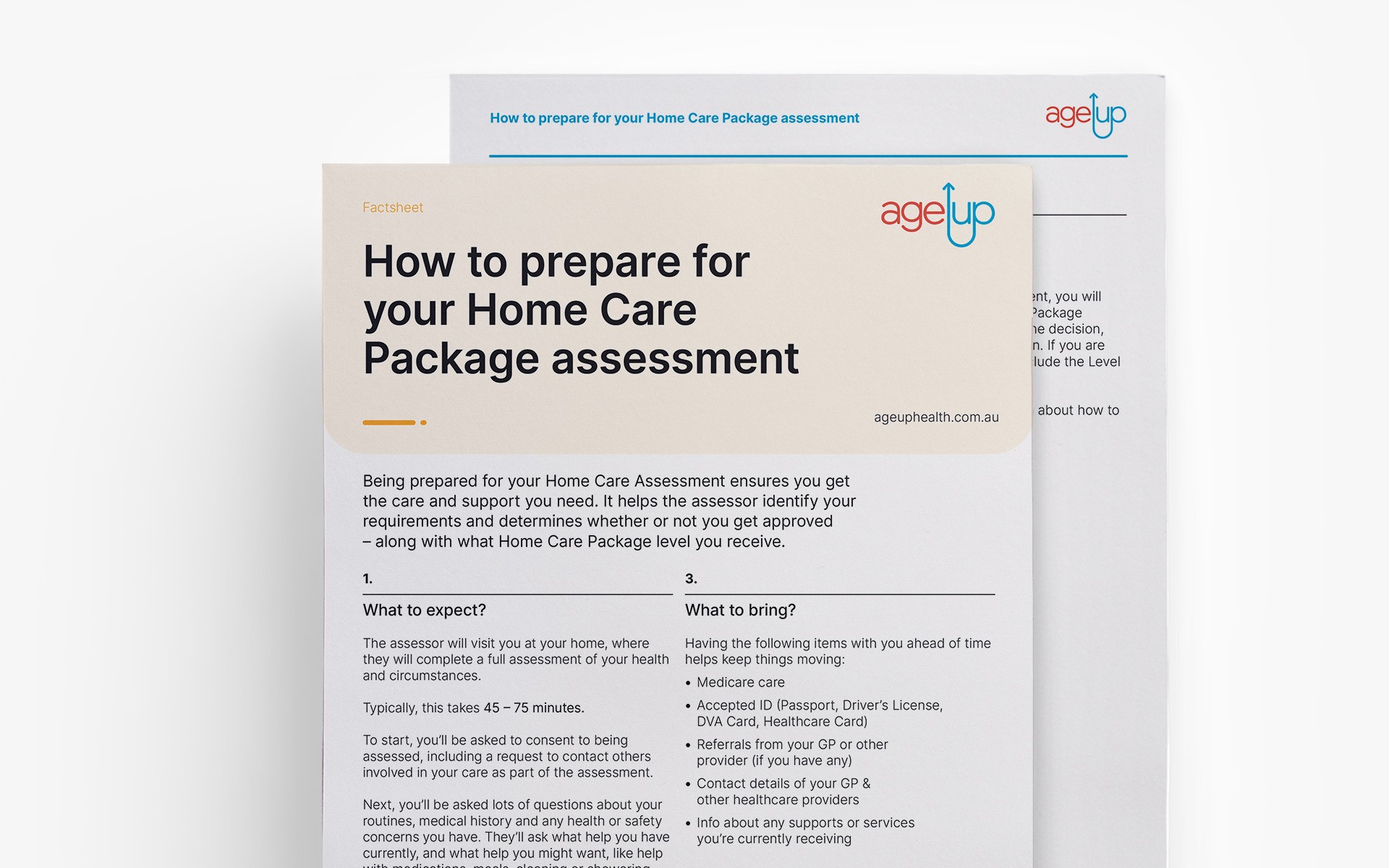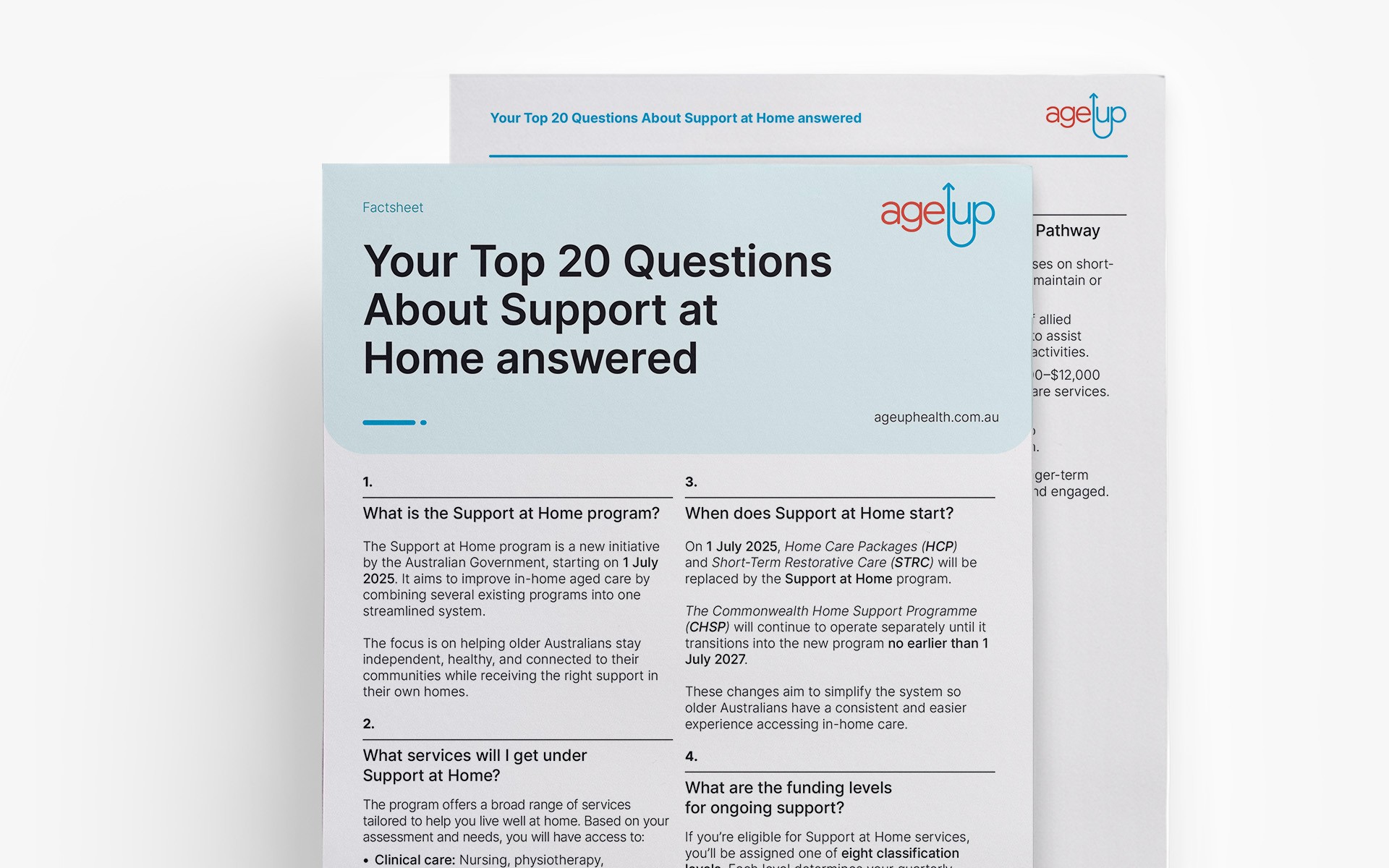Help and Advice

However, starting the conversation early can help extend independent living, improve overall wellbeing, and create a better living environment at home.
In this article, we offer some practical advice to help you approach the subject with confidence and be armed with useful facts.
The most common time someone enters the home care system is during a health crisis. Many people avoid seeking help because they fear losing their independence. They may also be reluctant to face the reality of ageing or declining health. In some cases, they may not want to burden their family or cause unnecessary worry. Optimism bias often plays a role, as well as concerns over the financial costs of home care. By understanding why someone might avoid the topic, you can be more prepared to approach the discussion in a thoughtful and compassionate way.
As people come to terms with changes in their health and abilities, it can be difficult to face reality. Start by focusing on what they
are finding difficult or what they feel they need help with. This can help make it easier to begin small, low-pressure support options
like domestic assistance or gardening services. Once they see the benefits of help, it might be easier to open up further about more
comprehensive home care services.
The Australian Home Care system can be slow. From the time of applying for an assessment to having funds released, the process can take 12 months or more. Sharing this information with your loved one can gently suggest the idea of starting the process before a health issue arises. This way, they won’t be caught off guard if a crisis happens.
Many people are surprised by the variety and flexibility of Home Care Packages. These packages offer a wide range of services to enhance
life at home, including personal care, domestic assistance, and even home and bathroom modifications for better mobility. Technology
like smart devices can also help clients stay connected with loved ones, while others use their packages for social activities to
improve mental and emotional wellbeing. People also use these services for lifestyle support, such as meal preparation or gardening, and
even allied health therapies like physiotherapy. Respite services are available for carers who need a break too. There are many ways
home care can make life easier and more fulfilling.
Sometimes it’s easier to talk to a health professional than a family member. If your loved one is resistant to the idea of home care, consider reaching out to their doctor or another trusted health provider. They may be able to help facilitate the conversation and encourage your loved one to consider the benefits of in-home support.
A common concern about home care is the fear of losing control. However, the Australian home care system is consumer-driven, meaning individuals can choose their home care provider and services. Home care plans are developed in collaboration with the client, so they are in control of which services they receive and how those services are delivered. By reassuring them that they will maintain their autonomy, you can help alleviate their fears and highlight the benefits of receiving support in their own home.
Starting the conversation about home care doesn’t have to be a one-off discussion. In fact, keeping the dialogue open over time can lead to better outcomes. Revisit the topic from time to time and share positive stories about people who’ve benefitted from home care. You might also want to pass on articles or personal stories that showcase how home care has improved others’ quality of life. By keeping the subject on the table, your loved one will be more likely to feel comfortable discussing it further.
Changes in health, habits, or behaviour can indicate that it’s time to consider home care.
Identifying these signs early and putting support in place ensures that your loved one can continue living comfortably and independently at home.
Factsheet

This factsheet on How to Prepare for your Home Care Assessment provides simple, straight-forward advice on what the expect and how to ensure
you get the care and support you may need.
Factsheet

To help make it easier we’ve pulled together your factsheet on Your Top 20 Questions About Support At Home in An easy-to-understand
factsheet.
Expect a single fee and the same friendly face each time. And rest assured that our packages are flexible enough that you can make changes
whenever you wish.
Contact us today to find out more.
Or book a free 15-minute consultation with one of our consultants.
Contact us today to find out how we can support you and your loved ones.